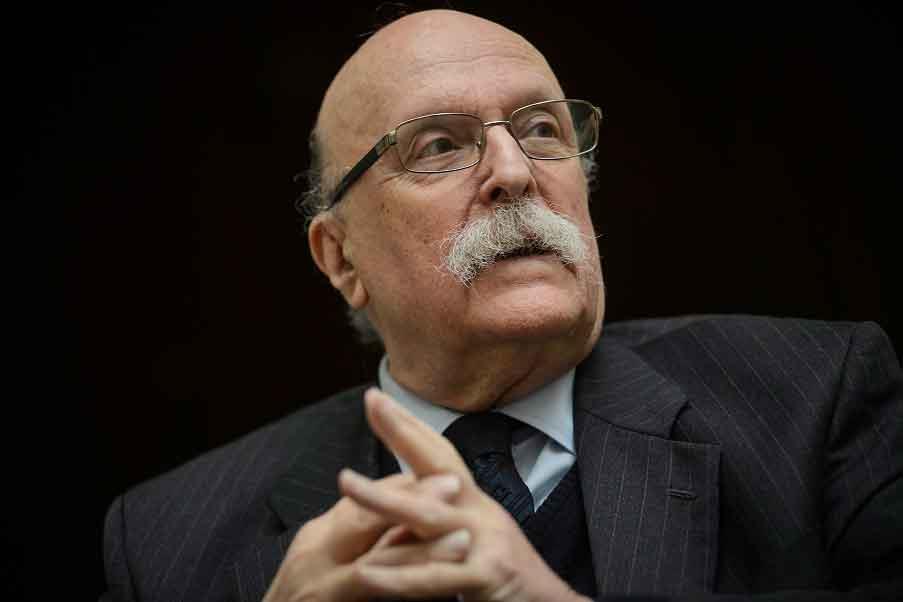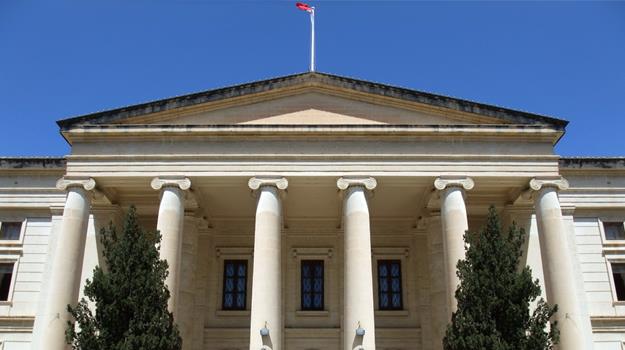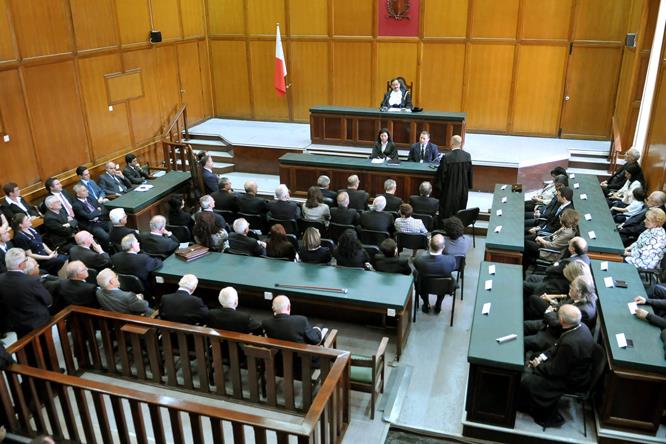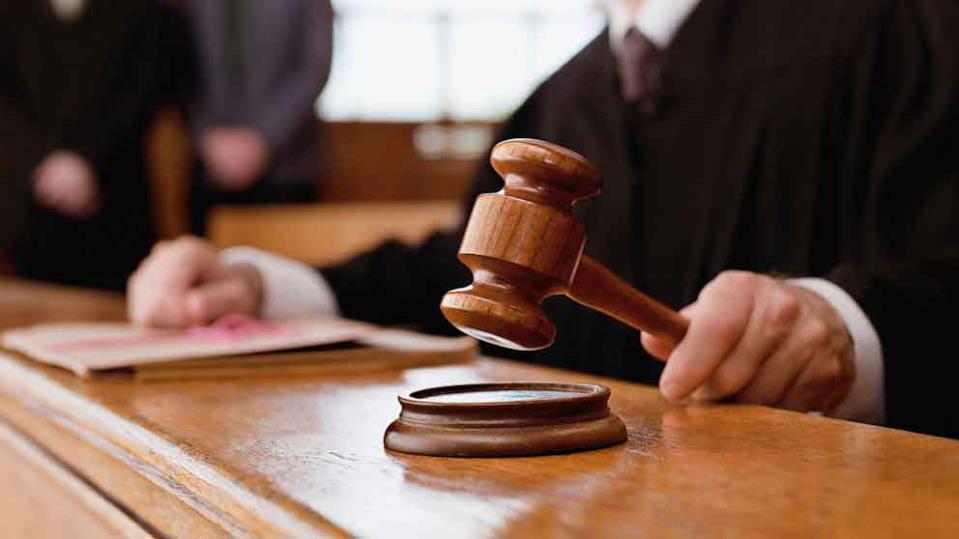The Chamber of Advocates lies within the 'once' hallowed halls of the Maltese Courts, a chamber where lawyers can meet, discuss and unwind. It is here, that Dr George Hyzler, President, and the rest of the Chamber convenes.
Portraits of past Chamber Presidents align the meeting hall, reminding all those who enter of the Chamber’s illustrious past. Dr Hyzler was recently appointed to the position of President, and as such is the mouthpiece for all lawyers, whether they practise in court or not.
Aside from giving a unified voice to those within the legal profession, the Chamber also acts as a consultant to government, where discussions are held on various confidential matters. In addition the President sits, ex officio, on the Commission for the Administration of Justice.
The discussion began with the Chamber’s ambitions for the coming year. “First and foremost on our list is the implementation of the Lawyer’s Act. We held discussions with government for years on this Act and we hope that it will be finalised and published this year. The Act will give the Chamber of Advocates a more determining role in regulating the profession, which is of fundamental importance. We are promoting the idea that lawyers would only be issued a warrant (a license to practise) with Chamber approval. Lawyers also undertake a year’s training following graduation in order to receive their warrant, whereby graduates work in a lawyer’s office for a year. We believe that this training period should be properly structured”.
He spoke of the need for the Chamber to reach out to lawyers who do not practise in court. “Their numbers are probably greater than court litigators such as in the financial services sector and other sectors and in general they do not feel so much part of the Chamber”.

The Chamber President was asked about the 2013 recommendations of the Justice Reform Commission, Chaired by Judge Giovanni Bonello. “There were a number of areas where we were in agreement and a number of areas where we had our reservations. The previous Committee passed on its opinion to Government. For instance, the report suggests that judges could be suspended for certain infringements - we do not believe suspension would be the correct measure. Should the reforms be implemented, a committee would have greater powers to discipline judges who have failed in their duties. Disciplinary measures would be taken for offences ranging from taking too long to deliver a judgement to conduct unbecoming”.
The recommendations, he said, would give this Committee the power to suspend or even demote members of the Judiciary from, for example, a Judge to a Magistrate. “We do not believe judges should be treated like schoolchildren, where they would be ordered to stay after school. Nor do we agree with the notion that judges could be demoted to, for instance, magistrates as suggested. Our view is that if you are not good enough to be a judge then you are no good enough to be a magistrate, in terms of credibility and competence”.
He explained that the Chamber accepts that some form of discipline should be exerted on the judiciary. “In the past we have seen that the need for a two-thirds Parliamentary majority to impeach a Judge does not work as political considerations come into play, thus the decision becomes politically motivated”. He argues that “we cannot exert the same kind of discipline on a judge or magistrate as one would on footballer for instance”.

The Chamber recommends that a body primarily composed of members of the Judiciary, and including a representative of the Chamber of Advocates and possibly party representatives be in charge of disciplinary measures, however urges caution in the kind of measures that can be taken. "Everybody makes mistakes, however, with regards to meting out disciplinary action, we are dealing with members of the judiciary and we need to tread carefully. A number of sensitive issues come into play such as their constitutionally guaranteed independence and the dilution of their credibility and that of the bench in the case of publicised sanctions”.
He emphasised the need to move towards a situation where Parliament has no role whatsoever in the removal of Judges as “this should not be a matter for the legislature”.
We are also very much in favour of revisiting the method of appointment of judges. This should no longer be the prerogative of the Executive. We have made recommendations in this regard.
Last year, the Chamber recommended that a specialised authority be created to handle judicial appointments, arguing that candidates aside from meeting the necessary requisites, should have their personal attributes screened to ensure they are ideal for the post.
Given that many issues faced by the judiciary are also faced by the Chamber, he was asked whether the Chamber also acts as a mouthpiece for the Judiciary. “The fact that we occasionally speak on matters that affect the judiciary, pension reform being one example, does not mean we act as their mouthpiece. We speak out as we have our own views on the matter and in the interest of Justice that, for instance, judges should have better working conditions. In addition members of the Judiciary cannot speak out so in those areas, when we feel we should speak out then we will do so”.

Reports of Court delays unfair
Asked for his opinion on a European report slamming the Maltese Courts for severe delays, he said: “I think it’s a bit unfair to look at it in this way as one must factor in the kind of assistance that Judges are given abroad. One major problem in Malta is that judges, to a great extent, work unassisted. One of the proposals of the Bonello Commission would see the creation of Jurists (lawyers appointed to a particular judge to research and prepare certain documentation required by the judge). Maltese judges do not have that kind of assistance at the moment… whereas abroad they do. It would be only fair to compare like with like. We are strongly in favour of creating teams to assist judges in their work”.
He argues that the number of Judges per capita in Malta is one of the lowest in Europe. “I’m not suggesting that the number of Judges be doubled to match the average in Europe, “however the fact is that when compared to other countries within the EU, the numbers are what they are”.

Judges should exert control over lawyers who cause delays
As for the perception that lawyers also contribute to delays in court, he did not exclude that lawyers, for various reasons “may not always carry out their duties in time… and this is wrong. Obviously some times it’s inevitable, however in the end the judge is in control. If I, as a lawyer, had to do something and did not, the judge has all the powers needed to makes sure the case is not unduly or capriciously delayed”. Dr Hyzler was not referring to one-off situations, however, urged disciplinary action should lawyers continue to delay court proceedings in such a manner. “The judge then finds himself in a problematic situation, where, if the lawyer is penalised then the client could also suffer. This is the dilemma often faced by judges”.
Dr Hyzler highlighted that the majority of public complaints relate to lawyers not appearing before the Court, stressing that there is a problem in how court appointments are managed. “This is an issue that needs to be addressed and I know a solution will not come quickly”. He stressed that currently both the public as well as lawyers are inconvenienced by cases are either not heard at the time allocated or are simply not allocated a time slot. “A lawyer can’t plan his day and a lawyer cannot be in three places at the same time. Unfortunately, there is no single system adopted by judges and magistrates and each one adopts his/her own system. The fact is that in this modern technological age, it should be possible for the judiciary to improve the current situation. There needs to be more of an effort by the judiciary to impose a unified appointments system where cases really start and finish at the time allotted to them”.

Turning to the large number of graduating lawyers, he said that his impression on the quality of these lawyers is quite positive. “The lawyers who undertake their training with us are usually well prepared and I would go as far as saying that they are possibly better prepared than those of previous generations. Having said that, given the numbers, one can afford to be a bit more selective… so I think we should encourage higher standards. Another factor present today is that of mobility, where quite a large number of lawyers travel abroad and take up posts in Europe. 20-odd years ago, law was the single profession where you wouldn’t switch country”.
The Chamber recently found an original copy of the Code de Rohan in its library. The Law Firm Camilleri Preziosi funded the restoration of the book. This happened when the Chamber was cataloguing the books in the Library through the efforts of Dr Vincent Galea and members of the Junior Chamber of Advocates.who while working on the organisation of the Library discovered this book and recognised its authenticity. The Code dates back to the 7th of July 1784. Dr Robert Thake has now been charged with the organisation of the Library.
Turning to the Legal Notice that increased Registry Fees for court procedures, Dr Hyzler said that lawyer fees were not changed, but only fees paid by the parties to file acts in court. He said that the Chamber was not consulted on this matter however tariffs are revised from time to time by the government of the day. “We would expect lawyers' tariffs to change accordingly. Times change and fees change”.